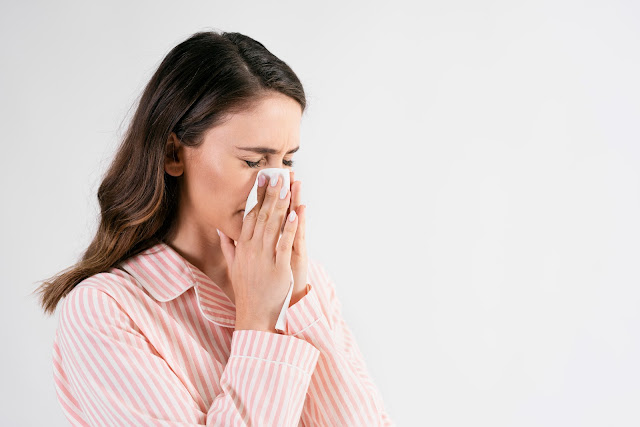Influenza (the flu) is an infectious respiratory illness caused by influenza viruses. Symptoms may include fever, cough, sore throat, body aches, and fatigue; though vaccines and antiviral medications are used widely to combat and treat this infection. While herbal treatments have also become an option in terms of relieving symptoms. In this article we'll look at some of the best remedies that may provide some relief.
Introduction
Flu can be debilitating and herbal remedies can provide much-needed relief from its uncomfortable symptoms. But it is important to remember that herbal treatments should supplement, rather than replace, medical advice from healthcare providers.
Echinacea (Echinacea purpurea)
Overview: Echinacea is a popular herb known for its immune-enhancing properties, specifically its effectiveness against flu symptoms.
How It Works: By stimulating the immune system and helping decrease severity and duration, echinacea may help lessen flu symptoms significantly Nazla Zukam Ka Desi Ilaj.
Usage: Echinacea can be taken in various forms, including capsules, tea, and tincture. Many people begin taking it at the first sign of flu symptoms to help ease discomfort.
Elderberry (Sambucus nigra)
Overview: Elderberry is a highly popular natural remedy often relied upon to soothe colds and flu symptoms.
How It Works: Elderberries contain compounds that may help reduce inflammation and stop flu viruses from replicating, making elderberry syrup and capsules effective treatment options for managing flu symptoms.
Usage: It is important to follow recommended dosages when taking elderberries to treat flu symptoms.
Ginger (Zingiber officinale)
Ginger therapy should also be tried as this remedy provides added antioxidant support against inflammation.
Overview: Ginger is an herbal remedy with anti-inflammatory and immune-enhancing properties that has long been revered as an effective means to alleviate nausea, sore throat pain, and reduce respiratory inflammation.
How It Works:When used effectively it may even provide pain relief from nausea.
Usage: Ginger can be consumed in various forms, such as ginger tea, fresh ginger slices or supplements.
Garlic (Allium sativum)
Introduction: Garlic is widely recognized for its antimicrobial and immune-enhancing properties.
How It Works: Garlic contains allicin, which may have antiviral properties and help combat flu infections.
Usage: Incorporate fresh garlic into your diet or take garlic supplements; some people also use garlic oil as a nasal decongestant.
Peppermint (Mentha piperita)
Overview: Peppermint is a soothing herb widely recognized for its ability to alleviate congestion and respiratory discomfort Pakistan Herbal Products.
How It Works: Peppermint can open airways, relieve headaches and lower fever.
Usage: Utilize peppermint tea, inhale essential oil vapor or apply diluted peppermint oil topically on chest for relief.
Conclusion
While herbal treatments can provide some temporary relief from flu symptoms, it's wise to be careful and consult a healthcare provider first if you have existing medical conditions or take medications that interact with any herbal treatments you decide to try. Herbal remedies should never replace prescribed antiviral drugs or vaccination against flu; if using herbal treatments anyway, adhere to recommended dosages and monitor symptoms closely; seek medical assistance immediately if your condition worsens or persists; combine herbal treatments with rest, hydration and medical guidance for more comfortable management and recovery from flu.


Comments
Post a Comment